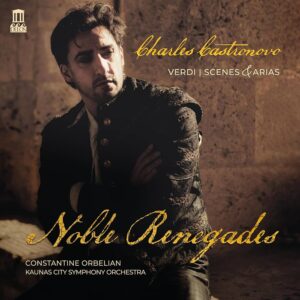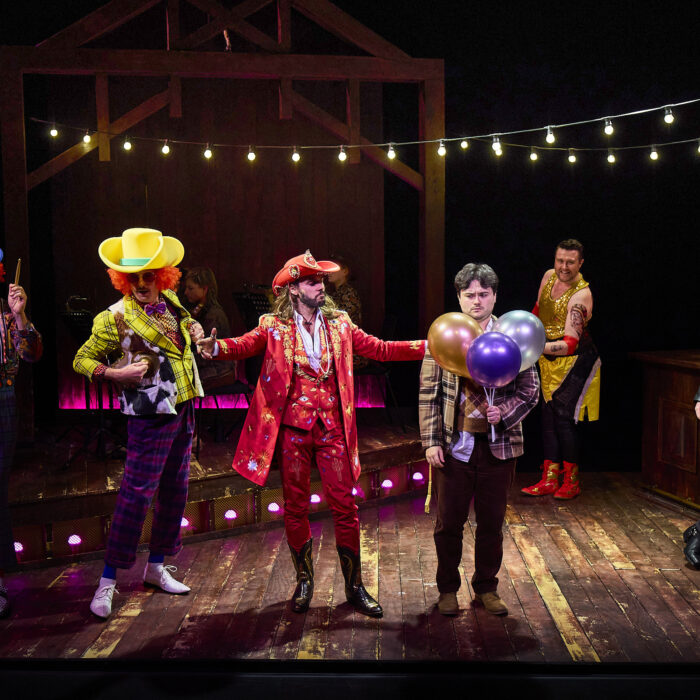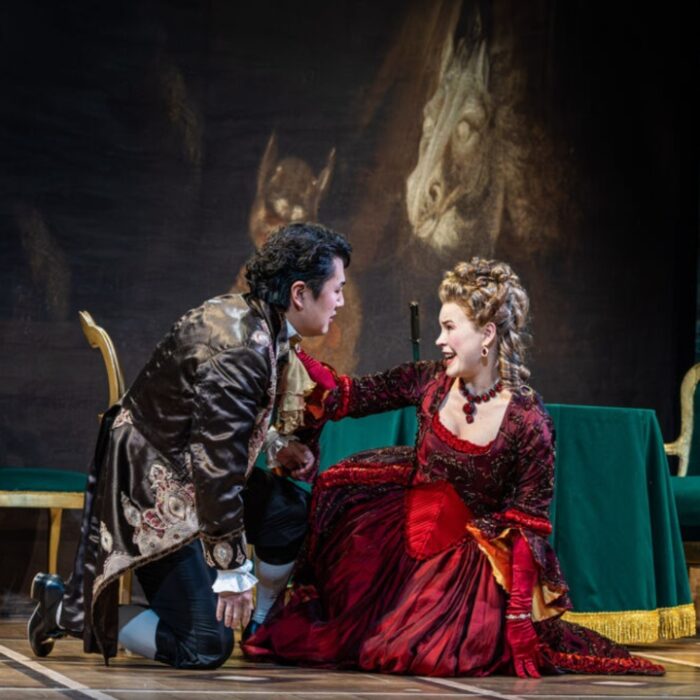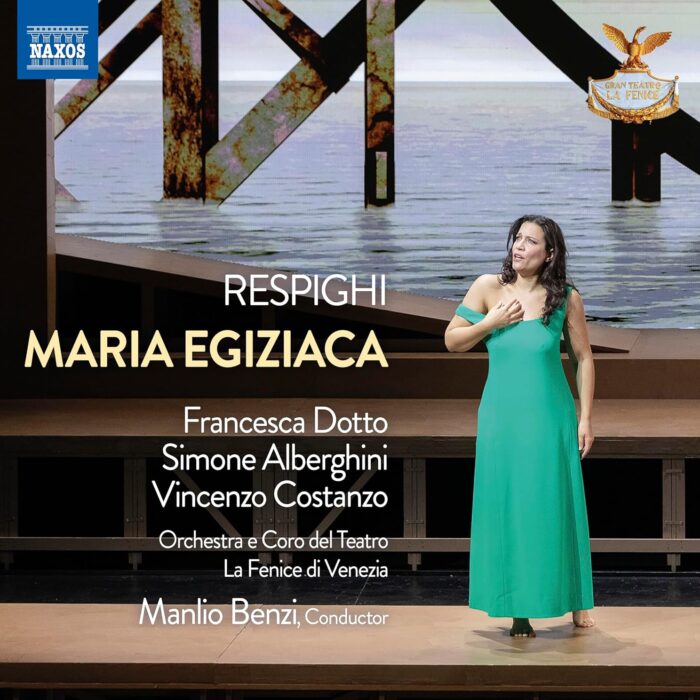
CD Review: Charles Castronovo’s ‘Noble Renegades’
By Bob Dieschburg
Met audiences will cheerfully remember last season’s run of “Un Ballo in Maschera” when Charles Castronovo’s signature chiaroscuro repeatedly proved the very backbone of his vocal physiognomy. “Noble Renegades,” for Delos Productions, purportedly builds on established strengths; but by dwelling mostly on (quasi-)stock characters from Verdi’s early to mid-career, the New York tenor outfits the recording’s 19 tracks with a seemingly unsophisticated allure bearing the hallmarks of some gently pervading lack of distinction, if not uniformity, between roles.
Risking Sameness
The album does not proceed chronologically; and although it opens with Don Carlos’s “Fontainebleau… Je l’ai vue” (1867; in French) the majority of arias stem from Verdi’s self-coined “years in the galley.” Conversely, “Rigoletto,” and – somewhat surprisingly – “Il Trovatore” are not part of “Noble Renegades.” Instead, it encompasses Jacopo Foscari’s “Dal più remoto esilio,” Oronte’s “La mia letizia infondere,” “Ah sì, ben dite” from “Il Corsaro,” and the more widely established “Quando le sere al placido.”
From the very outset, Castronovo demonstrates an uncanny ability to mold his voice into the honeyed diminuendos. The arioso of “Fontainebleau” is a case in point. Sadly, this variability does not mitigate the prevailing forte with which his characteristically virile timbre is expanded otherwise. The top notes, while impressive, come at the risk of feeling unsteady, especially outside of a gradually building line, and the emission tends to be audibly strained.
Still, his legato is generously spun, and commensurate with avoiding the pitfalls of trying to imbue Romantic opera with a proto-veristic expressiveness. On the flipside, the phrasing only barely delineates the context and personality of his characters, leaving Castronovo’s own profile surprisingly blank. Only Macduff’s “Ah, la paterna mano,” and Rodolfo’s Act two soliloquy escape this pattern by their more personalized phrasing. “Quando le sere al placido,” with its widely arched lines, induces a welcome range of dynamic variation; and Macduff’s pledge from the final act of “Macbeth” conveys his vengefulness through the tenor’s uncompromisingly muscular tone.
Constantine Orbelian, at the head of the Kaunas City Symphony Orchestra, is fairly engaging, though not equipped with nearly enough ductility for this kind of repertoire. For instance, in “La mia letizia infondere” (cut short on Spotify) he does not pick up on the playfulness of the tempi, putting Castronovo at a potential disadvantage. How much is lost can be gleaned from comparison with Tagliavini’s 1940 Cetra recordings, reproduced on “Lebendige Vergangenheit.”
Predating “Un Ballo”
“Noble Renegades” predates his Met performance by over one year during which Castronovo’s artistry has conceivably evolved. It reaches occasional highs, and his “Se m’e forza perderti” already displays full command over his instrument’s capabilities, including the proverbial tear (in “del nostro amor”).
Yet altogether his latest monograph does not do the singer justice, and having expanded the repertory into the period of Verdi’s full compositional maturity might have proven beneficial. Even an excursion into Boito (Castronovo sang a sensational Faust in 2016) would have been a very valid, and tested alternative.


